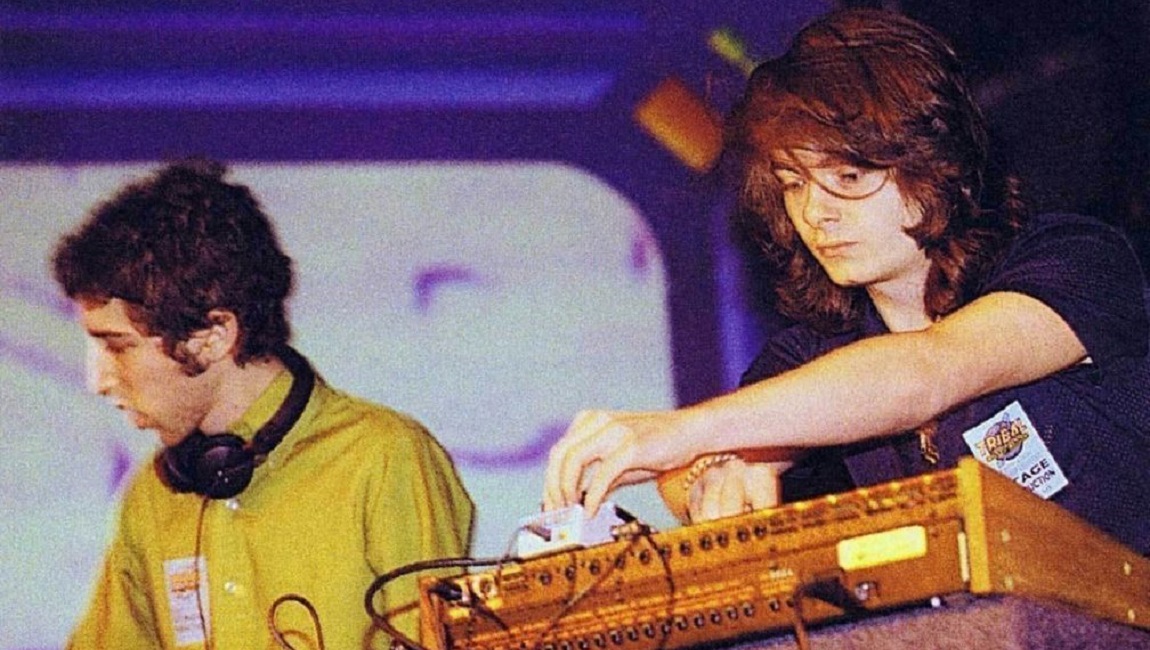On February 22 of 2021, a major musical rupture occurred: Daft Punk, the mythic French house duo, through an “Epilogue” video casually posted to their YouTube page, announced their separation. “1993–2021” read the title card, instilling a sense of finality to the break-up that could at least provide some closure — and yet, it was a conscious uncoupling that wasn’t exactly unexpected, at least to attentive listeners. It had been almost a decade since the duo last recorded an album, with zero word of mouth on a follow-up project during the lengthy interim. After setting something of a touring precedent 25 years earlier with their Daftendirektour in 1997 and Alive 2006/2007 — the latter of which produced an iconic, career-spanning mash-up set whose material became its own album — they chose to outright skip performing for all of 2017, dashing any remaining hope for new music on the horizon. Their last prominent artistic contributions were being featured on (and producing) The Weeknd’s two highest-charting singles on Starboy, which was maybe not-so-coincidentally right around the time the two had achieved their highest levels of commercial success. Suffice to say, neither have seemed terribly keen on the prospect of recording under the Daft Punk banner for some time now; the likelihood of a reunion is, at this time, slim to none. But as that title card points out, the Frenchmen pair of Guy-Manuel de Homem-Christo and Thomas Bangalter were together for an impressive 28 years, a period of time in which they managed to become international pop icons and critical darlings in one fell swoop.
But before they became household names (the group, not those long-ass given ones), before they made songs with Pharell Williams and were sampled by Kanye West, before they were even robots — they adopted those monikers for Discovery — they were just two kids who met at secondary school and stumbled into a punk rock band (with Laurent Brancowitz, who became the lead guitarist for Phoenix shortly after) before deciding, after a few nights out at the club, they loved drum machines and Roland synthesizers. When they secured a distribution deal through Virgin Records based on only two singles — largely thanks to The Chemical Brothers pushing them during their DJ sets — they still owned their own masters, allowing them to essentially operate as independent artists while still having a powerful worldwide conglomerate working in their favor to push records. With no major label interference where it mattered creatively, the two tinkered in their bedrooms and got to work. They weren’t even given a strict deadline for their debut album; the original plan was to release a string of solo tracks, and it was only after completion that Bangalter and Homem-Christo realized they had enough material to fill both sides of a double LP.
This period and method of work would result in Homework, an album that, as such, is best experienced not as an album; that is, it’s an album that works best when taken on a song-by-song basis, in morsels and smidgens. So then a bunch of singles? Yes and no, the latter mainly because you need the entire album for said singles. There are a lot of solid singles, a few great ones; many of which function best independently from one another, as their own internal structures are often more compelling than what they contribute in a broader sense. The way a track like “Around the World” — whose bass line has the same chord progression of “Get Lucky,” but in a different key — works around its instrumental variations and chainlink vocal patterns in much the same way a structural film like Michael Snow’s Wavelength derives much of its own power: as a document continuously building upon itself. Once you stack a few of these grand moments up against one another, it creates friction. This makes the experience of listening to Homework in one entire go a bit much, where you start to notice how much the aggressive “Rollin’ & Scratchin’” and “Rock ‘N Roll” sorta sound alike and have similar movements— or how there are two different intro tracks to pad out the length — even when both provide some of the most exhilarating highs across the hour-plus length.
That said, there’s often a refreshing playfulness to the compositional candor of Homework that Daft Punk eventually abandoned for more extravagant electronic offerings, a spunky, youthful sort of merriment that could only organically manifest on a debut album. They’re often uncomplicated, minimalist songs in terms of structure: they introduce all major musical elements early on, with repeating permutations and re-samplings providing the basic framework. The recording setup the two utilized for this project was equally spartan, bare-bones to a degree that’s, according to Bangalter, fitting with its title: this was homework for these plucky Parisian schoolboys, completed at a desk and treated as such.
Part of Kicking the Canon – The Album Canon.







